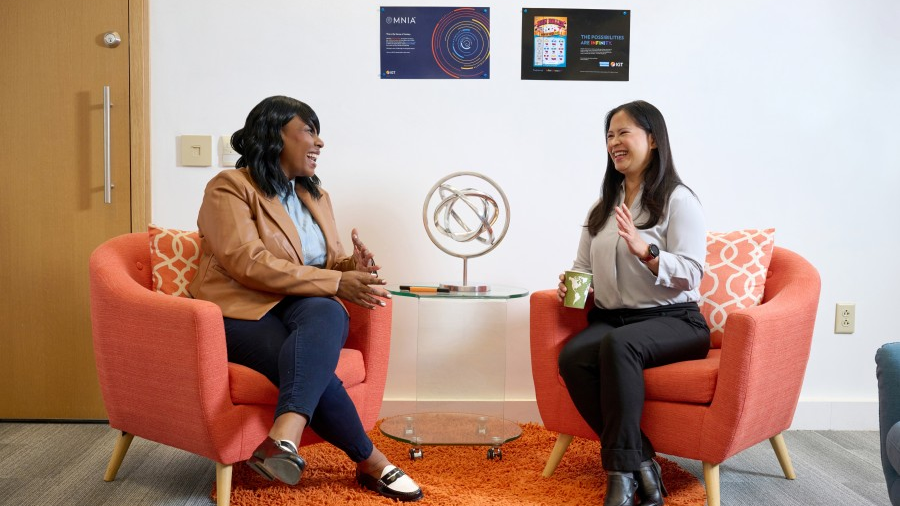Every week we spotlight techonomic happenings on the Web and beyond, picking people, companies, and trends that exemplify tech’s ever-growing role in business and society. Here’s what’s got our attention.
1. In Future, Data May Help Predict Even Wars
 Amazon predicts what you want to buy, political pundits predict who you’ll vote for, search engines predict what you’re looking for. And now researchers and social scientists are looking to similar techniques to predict mass violence and atrocities like war, civil unrest, and genocide. The “GDELT” Project (Global Database of Events, Language and Tone), created at Georgetown University, is updated every morning and catalogs more than a quarter billion event records from across the globe since 1979. The hope is that by mapping and tracking human societal-scale behaviors and beliefs we can learn from the past and better forecast the future. How accurately and how soon will we be able to predict coming episodes of mass violence? Probably not for a while, but thank goodness there are people trying.
Amazon predicts what you want to buy, political pundits predict who you’ll vote for, search engines predict what you’re looking for. And now researchers and social scientists are looking to similar techniques to predict mass violence and atrocities like war, civil unrest, and genocide. The “GDELT” Project (Global Database of Events, Language and Tone), created at Georgetown University, is updated every morning and catalogs more than a quarter billion event records from across the globe since 1979. The hope is that by mapping and tracking human societal-scale behaviors and beliefs we can learn from the past and better forecast the future. How accurately and how soon will we be able to predict coming episodes of mass violence? Probably not for a while, but thank goodness there are people trying.
2. This Manufacturing Technique Will Make 3D Printing Seem Old-School
Getting living organisms to do our manufacturing work for us may be the next big shift in materials science. This Quartz article explains how it becomes not inconceivable that in the nearish future we will have biological materials helping us assemble solar panels, for example, or possibly helping work with a variety of different non-biological materials. The ability of living cells to help assemble non-living ones is a big breakthrough the article reports on. It suggests that future capabilities might even include things like tape that repairs itself biologically if it detects that its adhesive is weakening. Wow.
3. IOE vs. Capitalism?
Jeremy Rifkin writes in the New York Times about the future of the collaborative, sharing, free economy, making some original new points. Most notably, he argues that because the Internet of Things will radically accelerate the growth of sharing and efficiency, it will implicitly lead to a reduction in capitalism itself and a further rise in the importance of non-profit institutions. The rise of “free goods,” tackled directly at Techonomy 2012 by MIT economist Erik Brynolffson, is in Rifkin’s opinion now going to extend well beyond the digital and virtual (where things like Gmail, this website, and innumerable other free opportunities are available). Rifkin argues that capitalism, while it has a future, will become a “niche” part of the economy. Philanthropy and NGOs may become much more central to all of our notions of social leadership and economic health.
4. Can Smart Cars Curb Road Rage?
 Road ragers beware. Get too angry behind the wheel and you’ll have to answer to … your own car? That’s right, our vehicles may soon be able to detect our emotional states while driving, automatically limiting speeds or issuing warnings to calm down when we become too aggressive, according to Gizmodo. The in-car emotion detector, invented by a joint research team from the Swiss technical school École Polytechnique Fédérale de Lausanne and the French automaker PSA Peugeot Citroen, monitors stress levels by using an infrared camera to measure feelings of anger and disgust. Still under development, the emotion detector will require further research before it can be tested for commercial use.
Road ragers beware. Get too angry behind the wheel and you’ll have to answer to … your own car? That’s right, our vehicles may soon be able to detect our emotional states while driving, automatically limiting speeds or issuing warnings to calm down when we become too aggressive, according to Gizmodo. The in-car emotion detector, invented by a joint research team from the Swiss technical school École Polytechnique Fédérale de Lausanne and the French automaker PSA Peugeot Citroen, monitors stress levels by using an infrared camera to measure feelings of anger and disgust. Still under development, the emotion detector will require further research before it can be tested for commercial use.
5. Your Garden Is About to Go Bionic
Imagine shrubs monitoring pollution levels, weeds storing electronic devices, and flowers detecting explosives and chemical weapons. Sounds like science fiction, but bionic plant life is not as far-fetched as you might think, according to new research from M.I.T. In the emerging field of plant nanobiotics, researchers are studying plants’ potential as technology platforms. By embedding various nanomaterials within plant cell structures, research shows, run-of-the-mill plant life can be transformed into high-tech sensors, monitors, and energy producers. “The potential is really endless,” M.I.T. researcher Michael Strano told M.I.T. News.
Techonomic Top 5: Predicting War with Data, Biological Manufacturing, the IOE Economy, and more
Every week we spotlight techonomic happenings on the Web and beyond, picking people, companies, and trends that exemplify tech’s ever-growing role in business and society. Here’s what’s got our attention.














